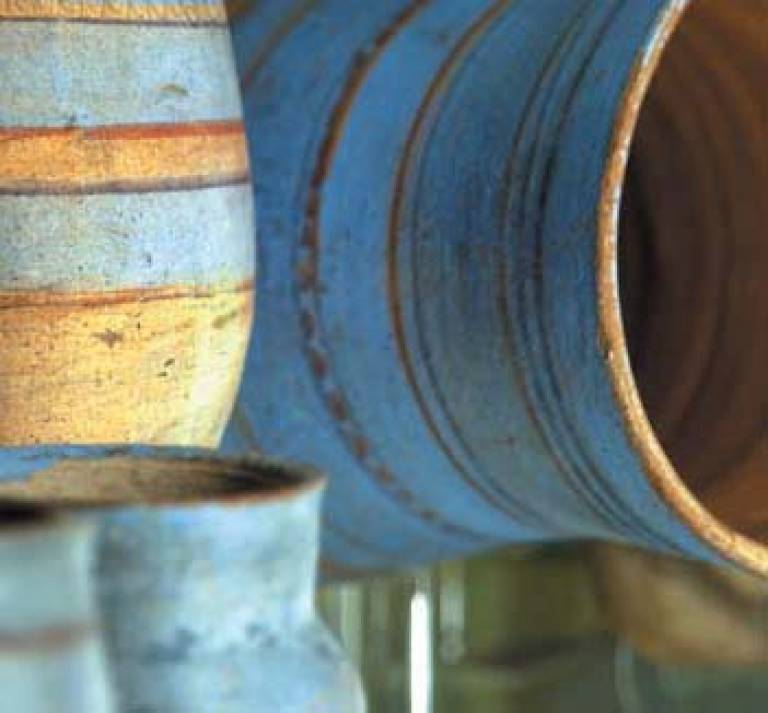Petrie Museum Unveils Major Re-Display of Egyptian Treasures
21 September 2010
Press Release Links:
 ucl.ac.uk/museums/petrie/#intro" target="_self">Petrie Museum of Egyptian Archaeology
ucl.ac.uk/museums/petrie/#intro" target="_self">Petrie Museum of Egyptian Archaeology
For the first time in over 30 years, the Petrie Museum will stage a major redisplay of its encyclopaedic collection of 80,000 Egyptian and Sudanese artefacts. The museum tells the story of the Nile Valley from pre-dynastic Egypt to the time of the pharaohs and pyramids to the emergence of Islam. Highlighted in the new display are the museum's many 'firsts': a dress from 5000 BC; a fragment of the first kinglist calendar from c.2900 BC; the earliest example of metal from Egypt; the earliest example of glazing; and the oldest will on papyrus paper.
The museum is also introducing an exciting new interpretative approach that brings objects to life by revealing the people and places behind them. There are vast numbers of everyday objects in the collection, such as combs, hair curlers, shaving razors, and mirrors, which provide insight into the way average Egyptians lived. In this regard, Professor Stephen Quirke, curator of the Petrie Museum, said: "The Petrie takes on one of the most important tasks for museums and universities today -- rehumanizing the past."
The museum experience is further enhanced by a new multi-purpose space where visitors can test cutting-edge technological tools developed at the Petrie. For example, visitors will be able to use the museum's 3D image kiosks to "virtually" pick up and rotate priceless artefacts to see them from different angles and perspectives. The new space also hosts the museum's dynamic programme of lectures, object-handling sessions, temporary exhibitions, and music and film events.
Despite the changes, the Petrie maintains its 'cabinet of curiosity' style of presentation, a source of fascination for many. Still actively used by the world's foremost Egyptology and Archaeology scholars and students, the museum offers a rare opportunity to go behind the scenes and see new discoveries about Egypt being made everyday.
This project is part of UCL Collections' new initiative to reveal the highly innovative, experimental and interdisciplinary work taking place in university-based museums.
-Ends-
For more information, contact Dave Weston in the UCL Press Office.
About the Petrie Museum of Egyptian Archaeology
The Petrie Museum houses University College London's Egyptian and Sudanese collections. Its importance was officially recognised in 1998 when it was designated by the UK government as being of 'outstanding importance'. Despite its small facility, it ranks with the British Museum, Metropolitan Museum in New York and Neues Museum in Berlin as one of the top specialist collections of objects from the Nile Valley region.
The collection is comprised of artefacts excavated by Sir William Flinders Petrie, commonly known as the 'Father of Modern Egyptology' and a pioneer of modern archaeological methods. The collection is unique because it is one of the few that comes from properly documented excavations.
The Petrie Museum, which offers a wide-ranging programme of temporary exhibitions, events and educational services, is open Tuesday-Saturday 13:00-17:00. Admission is free.
 Close
Close

